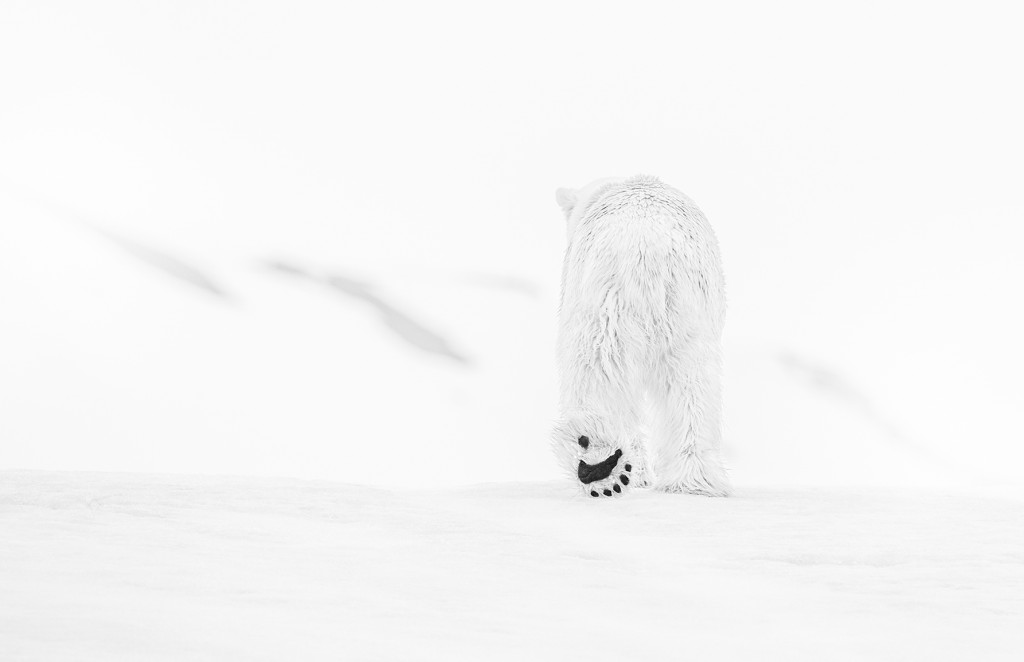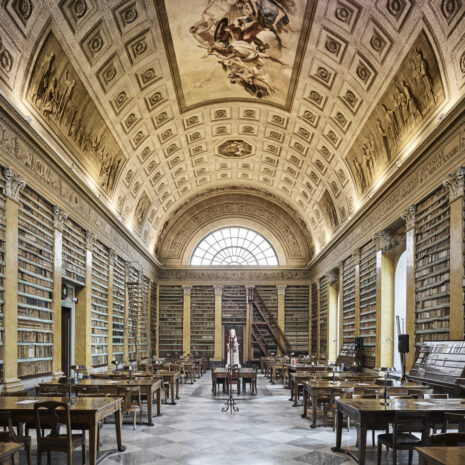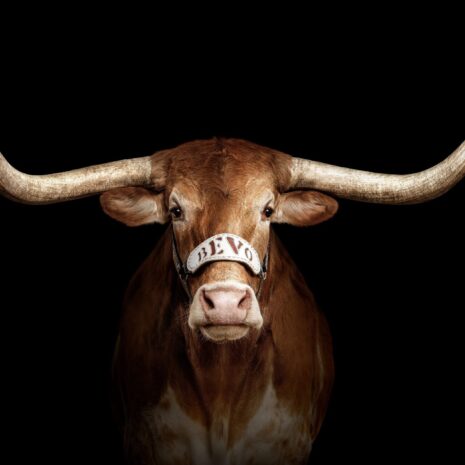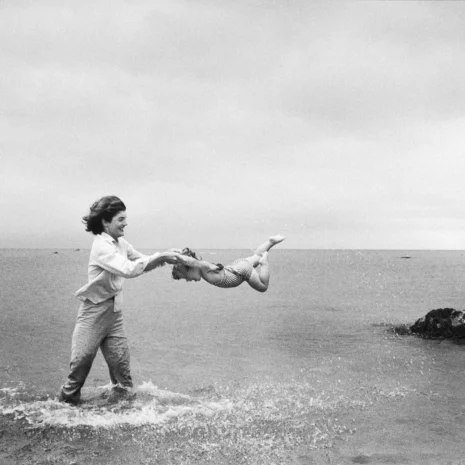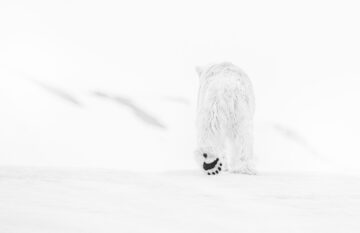78 Degrees North (David Yarrow)
119.38 x 129.54 cm
Size: 47" x 51" in. (119.38 x 129.54 cm)
Medium: Digital Pigment Print on Archival 315gsm Hahnemuhle Photo Rag Baryta Paper
Year: 2017
Svalbard, Norway 2017 I should start by saying that I have generally been disappointed by my own work with polar bears in Svalbard. I haven’t tended to do them or their habitat justice. This is a “Giants’ Kingdom” and my images from previous trips have been too marginal to do either the giants or their kingdom justice. Luck evens itself out, but nature can seem cruel in its distribution of content and in this barren archipelago, I don’t recall many favours until June 2017. This year, however, I did have some luck and came home with three images. There is no doubt in my mind that this photograph of a big male polar bear lends weight to the contention that wildlife photography does not need to be reportage – it can be art. The photograph is elevated by the negative space and the bear’s anonymity rather than weakened by it. Since 2011, I have spent over 30 days shooting in Svalbard and this is my favourite image of a polar bear in this part of the Arctic – indeed the more I look at it, the more proud I am. As my fellow Scottish photographer and friend, the great Harry Benson, once said “great images can never be repeated”. Others will decide if this is a great image, but it is certainly not going to be repeated. The eye is immediately grabbed by the detail we recognise but have perhaps never seen – the distinctive pads on the sole of his foot. The central pad, that resembles the Nike style “swoosh”, is the epicentre of a photograph that owes its differentiating content entirely to this right foot. The image is made complete by its own lack of completeness – the storytelling is started by the camera and finished by the viewer. We are asked to finish the story, not just read the story and the Spartan economy of the narrative helps us along the way. Less is more in the Arctic – its beauty is in its simplicity and the enormity of the white detail. It is not a noisy place – in fact it is characterised by the lack of noise. The image pays homage to that variable – it conveys a true sense of place. This is not a natural human habitat – it is in fact our final frontier. The irony was that it was the very last of a sequence of 60 images I took of the polar bear. A second after this moment, this most solitary of predators was over the horizon and our paths will never cross again. I did not press the trigger with this image in mind – it was such an intense 15 minutes that it would be most disingenuous to suggest that it was preconceived. The heart was beating too fast to consider creating art – these moments sometimes just happen. It was only when I returned to the ship, that I realised I had an extremely evocative photograph.


